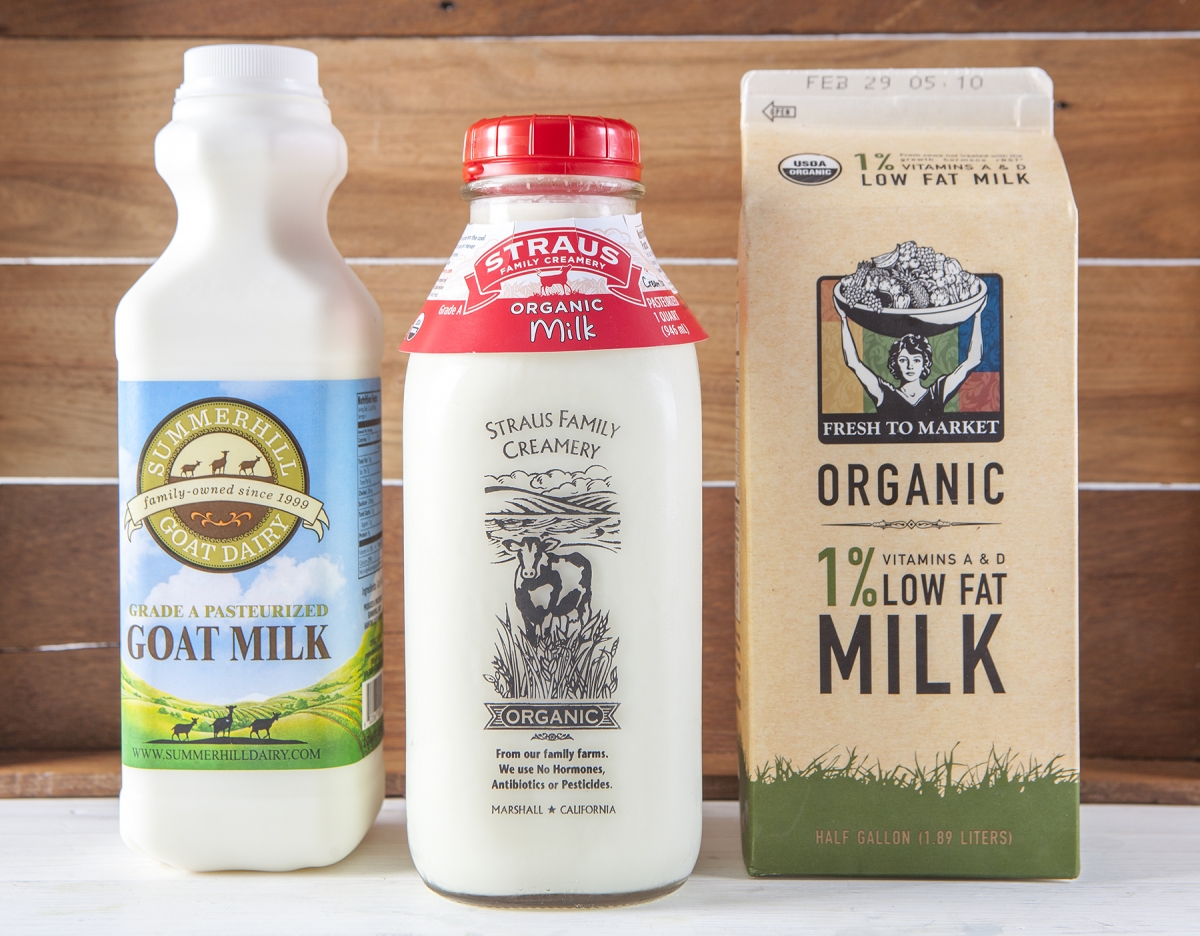Daily Dish the Nugget Markets blog

Udderly Dairy!
Health Notes by Dr. Liz
Please note that this is an older article. Any products or services pictured or described may have changed or may no longer be available. Thank you for visiting!
Back in the day, you drank a glass of milk and you knew where it came from—a cow! Check out the dairy section and beverage aisles nowadays, and along with cow’s milk you’ll find other dairy options like goat’s milk. Even with cow’s milk, you can choose fat-free, low-fat or whole milk. The options go on and on!
Not sure which dairy milk is right for you? Here’s the rundown on how they stack up nutritionally.
Back in the day, you drank a glass of milk and you knew where it came from—a cow! Check out the dairy section and beverage aisles nowadays, and along with cow’s milk you’ll find other dairy options like goat’s milk. Even with cow’s milk, you can choose fat-free, low-fat or whole milk. The options go on and on!
Not sure which dairy milk is right for you? Here’s the rundown on how they stack up nutritionally:
Cow’s Milk: The “gold” standard for milk, each cup provides a wealth of nutrients including protein (16% of the Daily Value), calcium (30% of the Daily Value) and B vitamins like B12 crucial for heart health. By law, cow’s milk is required to be fortified with vitamin D (25% of the Daily Value).
Studies show that cow’s milk drinkers may have better bone mineral density and lower risk for osteoporosis, as well as better maintenance of a healthier body weight and body fat (much to do with the well-absorbed calcium and other compounds in this dairy).
Cow’s milk and other mammals’ milk supply lactose, a carbohydrate which some people cannot tolerate and have intestinal issues of bloating and gas after consuming. No worries, though, as you can easily reach for lactose-free cow’s milk to avoid any issues.
- Fat-free, low-fat (1%), 2% and whole milk vary on the percent by weight of butter fat, and hence calories per serving (90 for fat-free to 150 calories for whole milk). They do not differ nutritionally when it comes to protein, calcium, B vitamins and vitamin D. Researchers are currently debating as to whether the saturated fat in whole milk may or may not be troubling for heart health. Consult with your health care professional about whether switching over to full fat dairy is safe for you.
- Organic milk comes from cows raised with organic feed and without the use of growth stimulants and other means to boost milk production. Some research shows this type of milk has slightly higher levels of the essential fat alpha-linolenic acid (ALA) that may have potential health benefits, but this is debated.
Goat’s Milk: Thanks to slightly different types of fat, goat’s milk has a bit of a strong taste but the same protein and calcium content as compared to cow’s milk. Goat’s milk also has lactose (perhaps a bit less than cow but typically not a noticeable difference for those who are lactose intolerant), but the smaller particles of fat in goat’s milk may make it a bit easier to digest than full-fat cow’s milk. Check the nutrition label, as goat milk may or may not be fortified with vitamin D.
Interested in non-dairy milk alternatives? Find out how they stack up against the real deal in Dr. Liz’s Health Notes, Milk vs. “Milk.”